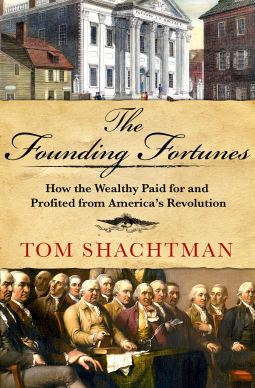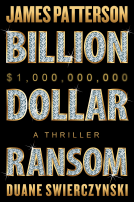
The Founding Fortunes
How the Wealthy Paid for and Profited from America's Revolution
by Tom Shachtman
This title was previously available on NetGalley and is now archived.
Send NetGalley books directly to your Kindle or Kindle app
1
To read on a Kindle or Kindle app, please add kindle@netgalley.com as an approved email address to receive files in your Amazon account. Click here for step-by-step instructions.
2
Also find your Kindle email address within your Amazon account, and enter it here.
Pub Date Jan 21 2020 | Archive Date Apr 01 2021
Description
In The Founding Fortunes, historian Tom Shachtman reveals the ways in which a dozen notable Revolutionaries deeply affected the finances and birth of the new country while making and losing their fortunes.
While history teaches that successful revolutions depend on participation by the common man, the establishment of a stable and independent United States first required wealthy colonials uniting to disrupt the very system that had enriched them, and then funding a very long war. While some fortunes were made during the war at the expense of the poor, many of the wealthy embraced the goal of obtaining for their poorer countrymen an unprecedented equality of opportunity, along with independence.
In addition to nuanced views of the well-known wealthy such as Robert Morris and John Hancock, and of the less wealthy but influential Alexander Hamilton, The Founding Fortunes offers insight into the contributions of those often overlooked by popular history: Henry Laurens, the plantation owner who replaced Hancock as President of Congress; pioneering businessmen William Bingham, Jeremiah Wadsworth, and Stephen Girard; privateer magnate Elias Hasket Derby; and Hamilton’s successors at Treasury, Oliver Wolcott, Jr. and Albert Gallatin.
The Founders dealt with tariffs, taxes on the wealthy, the national debt, regional disparities, the census as it affected finances, and how much of what America needs should be manufactured at home in ways that remain startlingly relevant. Revelatory and insightful, The Founding Fortunes provides a riveting history of economic patriotism that still resonates today.
Available Editions
| EDITION | Other Format |
| ISBN | 9781250164766 |
| PRICE | $29.99 (USD) |
| PAGES | 352 |
Average rating from 21 members
Featured Reviews
The Founding Fortunes is a complex read that takes time to read. Tom Shachtman has done a thorough research and it shows. This a interesting and informative book.
 Paul V, Reviewer
Paul V, Reviewer
With skill and thorough research, this is an excellent (and complicated) telling of some of our revolutionary history. You'll want to take your time with this one. I learned some really interesting facts and met a lot of historical figures I've never heard of that had an impact on our nation. Very engaging and memorable. Recommended.
I really appreciate the comp copy for an honest review!!
 Reviewer 223873
Reviewer 223873
Historian Tom Shachtman has furnished a rock-solid, impeccably researched investigation into a side of the Revolutionary War that tends to get scamped by both the patriotic rah rah histories and the Let’s Trash The Scum diatribes: just how a colony of thirteen very different entities managed to go to war against the most powerful empire in the western Europe.
There were definitely those who profited off war, as in every war, and they get their due, but there were also those who took a risk in uniting with people they didn’t necessarily agree with in order to fund what was actually a very long war, in the hope of winning independence for all.
The structure follows the lives and fortunes of twelve men, whose economic soldiering were crucial to the emerging finances of the baby republic. A lot of these names rarely show up except in footnotes of Revolutionary War histories: Henry Laurens; William Bingham, Jeremiah Wadsworth, and Stephen Girard; Elias Hasket Derby; and of course famous figures such as Alexander Hamilton, Robert Morris, and John Hancock, as well as Hamilton’s successors at the Treasury, Oliver Wolcott, Jr. and Albert Gallatin.
This is not an easy read, as each page is packed with information, but it’s an involving one. As I read about these financial privateers and pirates (in a couple cases, literally!) I couldn’t help but see some parallels to today. Only I don’t see any of these modern pirates doing anything for anyone but their own greed.
Anyway, a thoroughly worthwhile book for anyone interested in Revolutionary War history—and even if you think you aren’t.
 Doug B, Reviewer
Doug B, Reviewer
This book was well researched. I never thought much about how the American Revolution was funded. I just thought that France loaned the money and that did it all. Not the case at all. A number of well-to-do men in the colonies loaned the money to make sure that the army had the supplies it needed. Shachtman makes sure to cover all of those.
The one problem I had with the book is that there are so many people to keep track of. It isn't a book for an easy afternoon of reading. But it is definitely a book for filling in your knowledge of the foundations of the American revolution.
Readers who liked this book also liked:
Marie Benedict; Victoria Christopher Murray
General Fiction (Adult), Historical Fiction, Multicultural Interest
James Patterson; Duane Swierczynski
General Fiction (Adult), Mystery & Thrillers


















